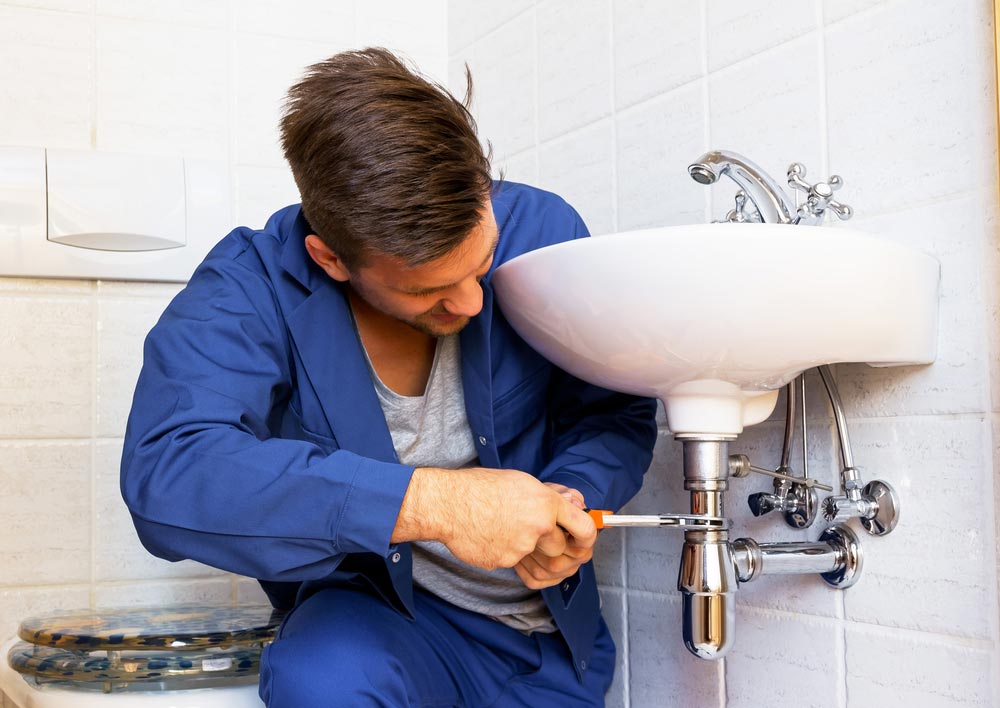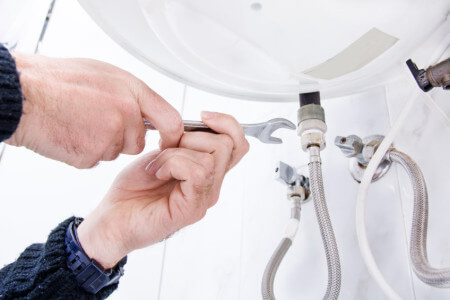Important Emergency Plumbing Fixes to Implement Until Professional Assistance Arrives
Important Emergency Plumbing Fixes to Implement Until Professional Assistance Arrives
Blog Article
What're your opinions on Expert Tips for Managing a Plumbing Emergency Until Help Arrives?

Pipes emergency situations can strike at any time, causing tension and potential damage to your home. Whether it's a burst pipe, a blocked drain, or a leaky faucet, knowing how to manage the situation until a professional plumbing professional gets here can conserve you from additional issues. This post supplies vital emergency plumbing tips to aid you minimize damages and gain back control during a plumbing crisis.
Turn Off the Water System
The primary step in any pipes emergency situation is to turn off the supply of water. For local concerns, such as a dripping faucet or toilet, switch off the shutoff near the fixture. When it comes to a major leakage or burst pipeline, find your home's main water shut-off shutoff and turn it off quickly. Understanding the area of these valves ahead of time can save beneficial time during an emergency situation.
Turn off Your Hot Water Heater
In specific emergency situations, such as a burst pipeline, it's a good idea to shut down your water heater. This protects against getting too hot or damages to the unit when water quits flowing. Shut off the power supply to the water heater (electric or gas) and let it cool down to stay clear of potential threats.
Briefly Stop a Ruptured Pipe
A ruptured pipe can bring about substantial water damage in mins. To reduce the issue:
Call a professional plumbing technician quickly to deal with the issue completely.
Have an Emergency Pipes Kit
Prepare a standard pipes emergency set to take care of minor problems effectively. Your set needs to include:
Having these tools available can make a considerable distinction in your capacity to take care of emergencies.
Unclog Drains Safely.
A blocked drainpipe can be a discouraging and untidy problem. Below's just how to tackle it:.
If these methods don't function, stay clear of making use of extreme force, as it may intensify the blockage.
Manage Overflowing Toilets.
An overruning commode can trigger instant mayhem. Here's what you should do:.
Address Small Leakages with Short-lived Repairs.
Little leaks can quickly come to be substantial issues if left unattended. Use these temporary solutions up until expert help gets here:.
While these fixes aren't long-term, they can help lessen water loss and damages.
Deal With Frozen Pipes Carefully.
In chillier climates, frozen pipelines are a common emergency situation. If you suspect an icy pipeline:.
Know When to Call an Expert.
While quick fixes can aid temporarily, certain pipes concerns require immediate expert focus. Call a plumbing if:.
Immediately speaking to a specialist ensures the issue is dealt with correctly and avoids further problems.
Stop Additional Damages.
Taking fast activity to lessen damages can conserve you money and time in the future. Right here's exactly how:.
Verdict.
Pipes emergency situations can be overwhelming, however with the best knowledge and devices, you can handle the circumstance effectively until aid gets here. By shutting off the water system, dealing with small leaks, and making use of momentary repairs, you can reduce damage and maintain your home safe. Remember, these suggestions are short-term solutions; always consult a licensed plumber to take care of the origin of the trouble. Prep work and quick thinking are your best allies in any kind of pipes emergency situation.
8 Helpful Tips for Managing Plumbing Emergencies at Home
If your plumbing system hasn’t failed once, wait for it because almost everyone has a story to tell. Sometimes, it could be simple emergencies such as a leaking pipe, a blocked cistern, or even a big burst pipe. In situations like this, you need to have some handy tips to save you some money and from possible damages.
Take care of minor issues early.
Sometimes, you could have avoided an emergency by taking proactive measures while it was still early. Some major plumbing emergencies can be a result of an ignored minor issue. We recommend that you have items like plumbing tapes and other related items. A plumbing tape can allow you to manage minor leaks before the plumber arrives.
Cut off the water supply.
This tip is essential in almost any type of leakage problem. For problems like minor leakages in the toilet or kitchen, turn off the supply that takes water to the affected pipes. If the leakage is a major pipe, you must shut off the supply valve to the entire building. This will help you avoid flooding your home and neighbors if you share a flat.
Know your plumbing system
Folks typically move into a new apartment without understanding the water supply around the building. This can prove disastrous if a water emergency arises and the plumber is far away. The previous tip will prove useless if you don’t practice this one. More importantly, know where your water shut-off valve is located – you’ll need that knowledge to prevent potential home floods.
Have some common handy tools
There are lots of plumbing emergencies that you can handle without hiring a plumber. That’s why you must keep some tools available always. Some tools that you can use to fix simple plumbing emergencies easily include plumbing tapes, screwdrivers, thread seal tapes, plungers, pliers, tape measures, and rubber gloves.
Insulate your pipes from cold
You’ll save yourself from many plumbing expenses if you protect your water pipes from the cold. This is because of the harmful effects that cold weather can have on your pipes. During winter, your pipes can burst from being overly expected to freezing temperatures. So, make sure insulators are there to keep the pipes working correctly.
Avoid practices that will clog your toilet.
Many people indulge in practices that can damage the plumbing system of the entire building. One of these is when they use their toilet to dispose-off garbage. They flush all kinds of things, such as paper towels, bandages, hairs, female sanitary products, etc., down the toilet. This will block your toilet in the long run, incurring unnecessary expenditures. Dump such waste in the trash instead.
Check your dials regularly.
Sometimes, there could be leakages in your home without noticing them in time. So, constantly monitor your water meter dial. If the dial is reading when there is nobody using water, this is an indicator that there is leaking. Check for leaks immediately. Call a plumber as soon as possible if you can’t find any.
https://www.constructionplacements.com/8-helpful-tips-for-managing-plumbing-emergencies-at-home/

We had been shown that article about Expert Tips for Managing a Plumbing Emergency Until Help Arrives from a good friend on our other site. Do you know about someone else who is sincerely interested in the topic? Feel free to promote it. Thanks a lot for taking the time to read it.
Set An Appointment Report this page